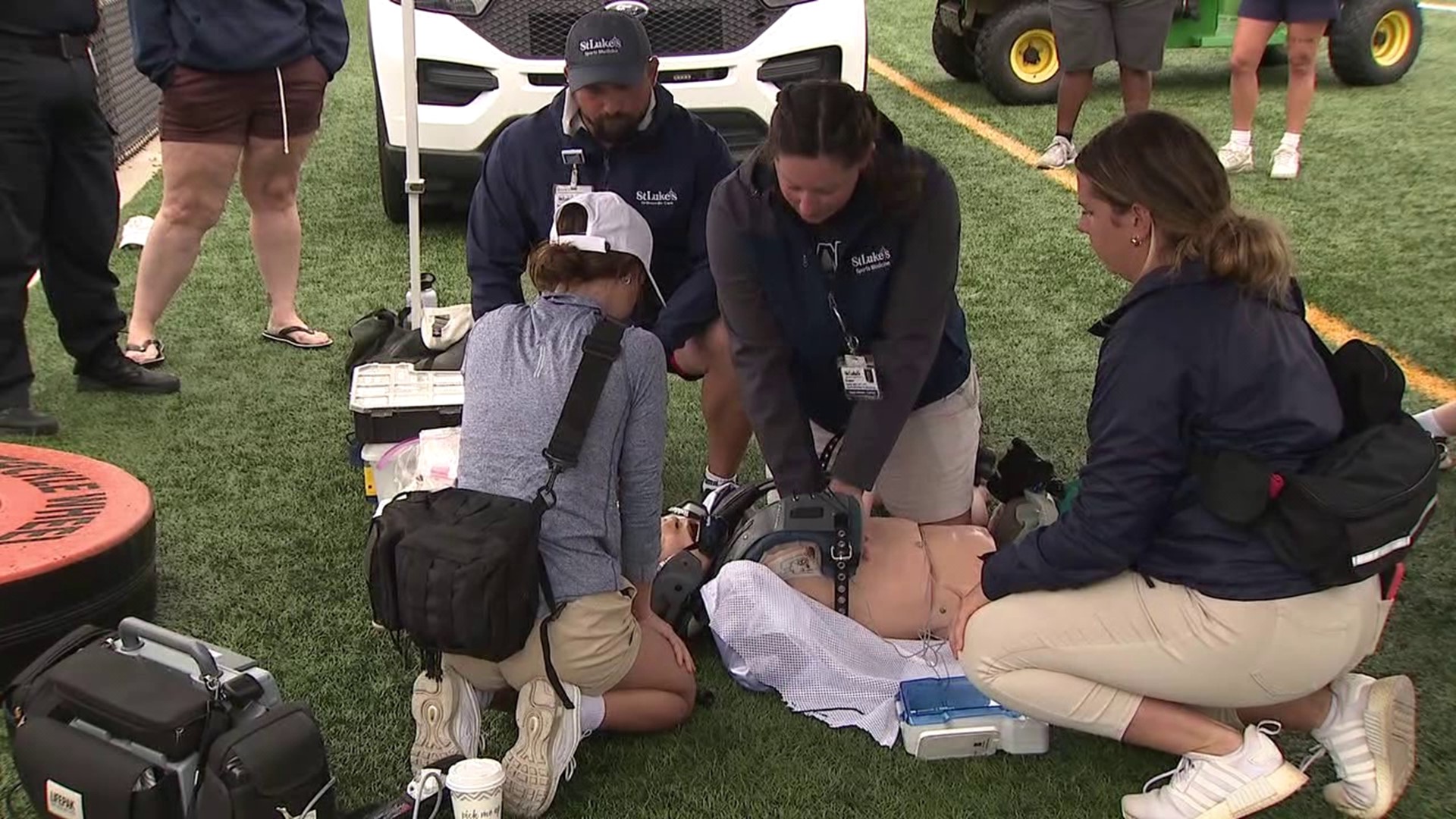TOBYHANNA, Pa. — As the lead athletic trainer, Evelyn Payne is used to standing on the sidelines at Pocono Mountain West High School in Tobyhanna Township.
But today, she wasn't watching a practice or tending to any athletes.
Instead, she's fine-tuning her skills on how to save lives.
"We want to make sure that we're doing high-quality CPR," Payne said.
Ahead of high school sports season, Pocono Mountain Emergency Medical Services, St. Luke's Health Network's Athletic Training Department, and the school district teamed up to take part in a series of training exercises designed to simulate the response to a cardiac arrest event during a practice or a game.
Cardiac arrest is when the heart stops beating suddenly.
"When cardiac arrest occurs, minutes count, and seconds count. The collaborative response and the organized response between athletic trainers who start the care initially on the field and working with EMS coming in. Giving us a good report of what was going on and making sure that we worked together and there are no hiccups. That seamless transition is what makes the difference and saves lives," said Austin Schrader, the Chief operating officer for Pocono Mountain Regional EMS.
Recently, there have been some high-profile cardiac emergencies in young people. Now, those who put on the training say they felt it was necessary to practice for it ahead of high school sports season.
"We chose cardiac arrest because of the recent events with Damar Hamlin and Bronny James. So it seemed important to practice a scenario like this in full pads, on the field with full involvement from EMS and all of our local athletic trainers," said Payne.
Responding to Cardiac arrests is something Payne says athletic trainers have been trained to do for years.
"Sometimes it's scenarios you don't always come across, and maybe you learn about it in school, and you don't see it, so it's good to keep it fresh on your mind because they are important live-saving techniques that everybody needs to be ready to handle," Payne said.
The training covered everything from heat-related illnesses and spinal injuries to the removal of helmets and shoulder pads.

